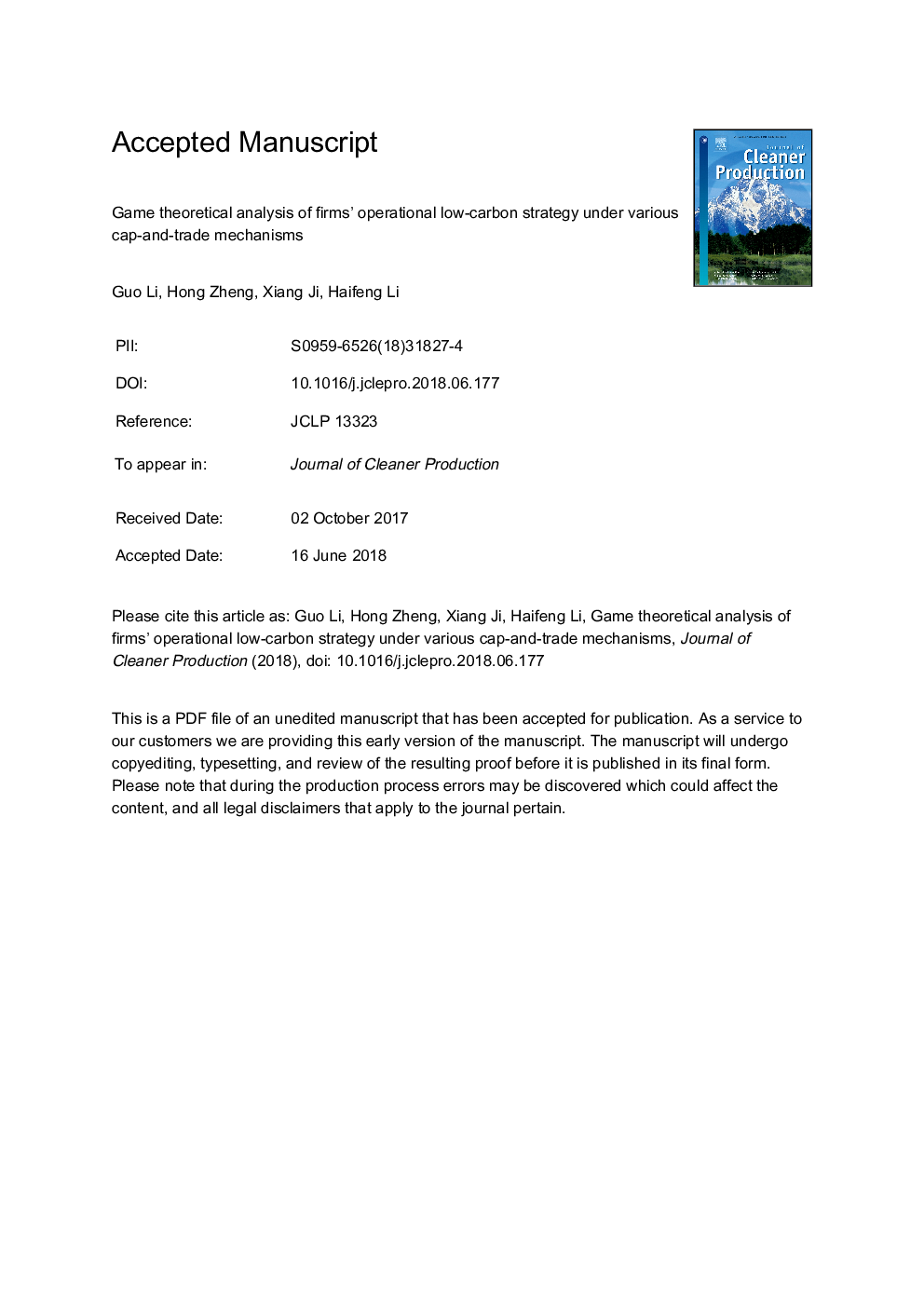| Article ID | Journal | Published Year | Pages | File Type |
|---|---|---|---|---|
| 8093721 | Journal of Cleaner Production | 2018 | 36 Pages |
Abstract
Governments commonly utilize various carbon emission regulations to ensure the sustainable energy consumption of firms and consequently improve the total social welfare. In this study, we apply a game theoretical model to analyze how a manufacturer's operational decisions on sustainable energy consumption and low-carbon production will be changed with the variation in official cap-and-trade policies. Results will provide the government with analytical supplements in making real-world decisions. Our findings show that the manufacturer can obtain increased incentives to upgrade its purification technology in a high low-carbon preference market compared with that in a low low-carbon preference market. Furthermore, the government should constrain the cap-and-trade policy and encourage the manufacturer to upgrade its purification technology when the consumers' low-carbon preference is relatively high. These research findings reveal that when consumers show a high low-carbon preference level, the manufacturer should make socially optimal decisions for its operations. When consumers show a moderate low-carbon preference level, a significant conflict occurs between social welfare optimization and purification technology upgrade. Thus, if a technology upgrade is necessary, then policy-based promotion to increase the consumers' low-carbon preference level is an essential factor to maximize the total social welfare.
Related Topics
Physical Sciences and Engineering
Energy
Renewable Energy, Sustainability and the Environment
Authors
Guo Li, Hong Zheng, Xiang Ji, Haifeng Li,
